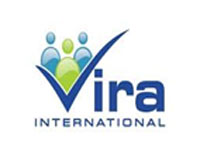
A combination of classroom instruction and real-world, industry-based experience is emphasised in the NEP (National Education Policy) standards for Work Integrated Learning Programs (WILP). WILP programs seek to improve students' employability and abilities by bridging the gap between professional practice and classroom instruction.
Guidelines for the undergraduate "Apprenticeship Embedded Degree Program (AEDP)" [March, 2025] launch have been released by UGC. In accordance with the National Education Policy, UGC added, the initiative seeks to close the gap between industry demands and education. Undergraduate students will complete internships in addition to their present coursework in accordance with the standards.
By encouraging a blend of theoretical knowledge and practical abilities, WILP programs support NEP's goal of incorporating vocational training into academic programs.
This program ensures that skills acquired through WILP are officially recognised by offering a systematic framework for credit recognition and transfer between training and educational programs.
WILP programs aligning with NEP place a strong emphasis on students gaining practical industrial experience, which enables them to apply their theoretical knowledge in authentic situations.
To ensure that the training and curriculum are pertinent to industry demands, the NEP promotes cooperation between academic institutions and businesses in the development and implementation of WILP programs.
The NEP encourages educational routes to be flexible, enabling students to enrol in and withdraw from programs at different points in time according to their competency and earned credits.
To guarantee that students gain the abilities and information required for the hospitality sector, the NEP places a strong emphasis on learning objectives and a competency-based approach to curriculum creation.
WILP programs aim to help students improve their communication, problem-solving, leadership, and teamwork abilities.
WILP programs frequently incorporate industry placements and internships, giving students networking opportunities and invaluable practical experience.
WILP programs may offer various certification levels based on the National Skills Qualification Framework (NSQF) levels, including certificates, diplomas, and degree programs.
From Classrooms to Boardrooms — Our Students Make Their Mark






